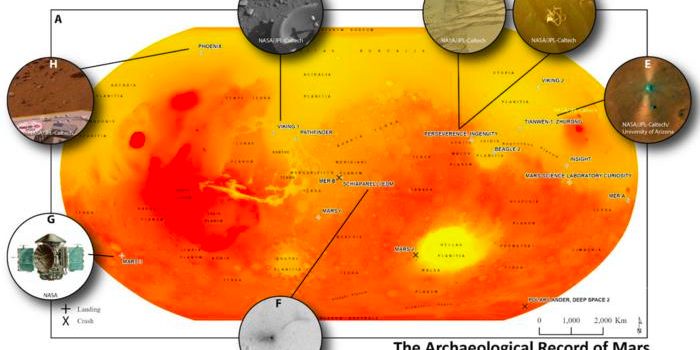Ocean Heat Content Soars in 2024, Amplifying the Climate Crisis
What impacts did climate change have on ocean temperatures in 2024? This is what a recent study published in Advances in Atmospheric Sciences hopes to address as an international team of scientists investigated ocean temperatures both at the surface and 2000 meters (6561 feet) below the surface, also called the ocean heat content (OHC). This study has the potential to help researchers, climate scientists, legislators, and the public understand global climate change effects and the steps that can be taken to mitigate them.
For the study, the researchers analyzed the global ocean heat content (OHC) for 2024 and compared these findings to 2023 in scientific units of zeta joules (ZJ), which is the amount of heat being added to the oceans, and with 1 ZJ equivalent to 1021 Joules. The OHC influences sea levels, marine life, and weather patterns, so better understanding its change over time is important for measuring the effects of climate change. In the end, the researchers found that the 2024 OHC was approximately 16 KJ higher than the 2023 OHC, with several oceanic bodies experiencing record OHC levels in 2024, including the Southern Ocean, North Pacific, North Atlantic, Mediterranean Sea, tropical Atlantic, and Indian Ocean.
“The main way the ocean continues to influence the climate is through accompanying increases in water vapor in the atmosphere that leads to the damaging increases in extremes in the hydrological cycle,” said Dr. Kevin Trenberth, Distinguished Scholar at the National Center of Atmospheric Research and a co-author on the study. “Water vapor is also a powerful greenhouse gas and increased heating leads to drying and risk of drought and wildfire. But it also fuels storms of all sorts and leads to risk of flooding. That includes hurricanes and typhoons.”
As noted, the OHC influences sea levels, marine life, and weather patterns, all of which are negatively impacted by climate change, resulting in rising sea levels, reduced marine ecosystems, and extreme weather events like more intense hurricanes. Therefore, better understanding annual changes in OHC could help raise awareness for climate change and take appropriate action to mitigate the effects before OHC levels become too high.
How will climate change continue to affect the global oceans in the coming years and decades? Only time will tell, and this is why we science!
As always, keep doing science & keep looking up!
Sources: Advances in Atmospheric Sciences, EurekAlert!
Featured Image: The Southern Ocean that surrounds Antarctica. (Credit: Chao Ban)








